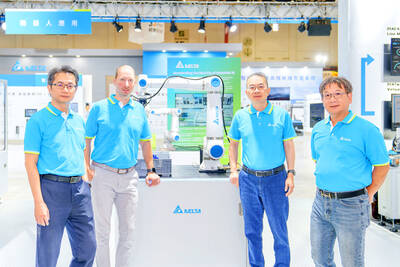Nicaraguan President Daniel Ortega has accused foreign textile companies, mostly Taiwanese, of "enslaving" workers and leaving the country instead of paying higher wages.
Ortega said several industries closed in free zones following the government's recent decision to increase the minimum wage by 18 percent.
"There is talk that the companies are going to leave the free zones, that people are going to be left unemployed," the leftist Ortega said in a speech late on Wednesday.
"When they find that they have to pay more, it is no longer worthwhile and they leave," he said.
The president said the owners of textile industries "enslave" Nicaraguan female workers, forcing them to work long hours in exchange for "the lowest salaries in all of Central America."
"When they see that they should increase their employees' wages by 18 percent, they decide to leave for places like ... China and Vietnam, although they are Taiwanese," Ortega said.
The Nicaraguan president said his country needed "long-term investment and not this kind."
Free zones, which offer incentives to foreign companies by cutting tariffs and quotas, started to operate in Nicaragua in 1990 and have become an important source of jobs. More than 83,000 people work in 112 firms, most of them from Taiwan, South Korea and the US.
Miguel Ruiz, secretary general of the Sandinista Workers Union, which is close to the government, said on Wednesday that at least five factories have closed this year.
He attributed the fact to "a 30 percent reduction in work orders."
In related news, Taiwanese Ambassador to Nicaragua Wu Chin-mu (
Wu said the policy to increase salaries was put in place after Ortega took over the Nicaraguan presidency, but that labor costs still were the lowest in Central America.
A Nien Hsing official who mentioned some of the problems encountered in Nicaragua's free zones in an interview with the Miami Herald last week said that pulling out its investments was one of the company's possible strategies.
The report was picked by Nicaraguan newspapers this week.

SETBACK: Apple’s India iPhone push has been disrupted after Foxconn recalled hundreds of Chinese engineers, amid Beijing’s attempts to curb tech transfers Apple Inc assembly partner Hon Hai Precision Industry Co (鴻海精密), also known internationally as Foxconn Technology Group (富士康科技集團), has recalled about 300 Chinese engineers from a factory in India, the latest setback for the iPhone maker’s push to rapidly expand in the country. The extraction of Chinese workers from the factory of Yuzhan Technology (India) Private Ltd, a Hon Hai component unit, in southern Tamil Nadu state, is the second such move in a few months. The company has started flying in Taiwanese engineers to replace staff leaving, people familiar with the matter said, asking not to be named, as the

The prices of gasoline and diesel at domestic fuel stations are to rise NT$0.1 and NT$0.4 per liter this week respectively, after international crude oil prices rose last week, CPC Corp, Taiwan (台灣中油) and Formosa Petrochemical Corp (台塑石化) announced yesterday. Effective today, gasoline prices at CPC and Formosa stations are to rise to NT$27.3, NT$28.8 and NT$30.8 per liter for 92, 95 and 98-octane unleaded gasoline respectively, the companies said in separate statements. The price of premium diesel is to rise to NT$26.2 per liter at CPC stations and NT$26 at Formosa pumps, they said. The announcements came after international crude oil prices

STABLE DEMAND: Delta supplies US clients in the aerospace, defense and machinery segments, and expects second-half sales to be similar to the first half Delta Electronics Inc (台達電) expects its US automation business to remain steady in the second half, with no signs of weakening client demand. With demand from US clients remaining solid, its performance in the second half is expected to be similar to that of the first half, Andy Liu (劉佳容), general manager of the company’s industrial automation business group, said on the sidelines of the Taiwan Automation Intelligence and Robot Show in Taipei on Wednesday. The company earlier reported that revenue from its automation business grew 7 percent year-on-year to NT$27.22 billion (US$889.98 million) in the first half, accounting for 11 percent

A German company is putting used electric vehicle batteries to new use by stacking them into fridge-size units that homes and businesses can use to store their excess solar and wind energy. This week, the company Voltfang — which means “catching volts” — opened its first industrial site in Aachen, Germany, near the Belgian and Dutch borders. With about 100 staff, Voltfang says it is the biggest facility of its kind in Europe in the budding sector of refurbishing lithium-ion batteries. Its CEO David Oudsandji hopes it would help Europe’s biggest economy ween itself off fossil fuels and increasingly rely on climate-friendly renewables. While